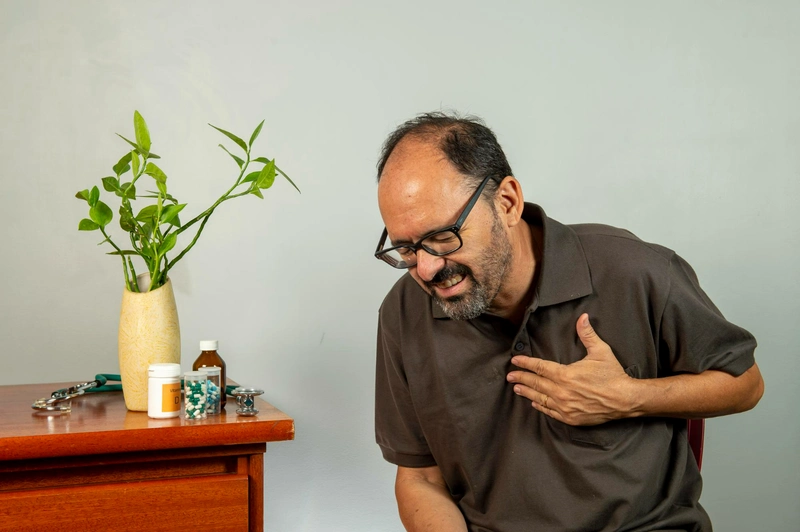- Published on: Sep 17, 2022
- 2 minute read
- By: Second Medic Cancer Expert
Understanding Hypertension
There are many factors that can contribute to hypertension, including genetics, diet, and lifestyle. Some people are born with a predisposition to high blood pressure, while others may develop the condition over time due to poor eating habits or a sedentary lifestyle.
If you're diagnosed with hypertension, there are many things you can do to help control your blood pressure and improve your health. Quitting smoking, reducing sodium intake, maintaining a healthy weight, and getting regular exercise are all important steps in managing hypertension. Talk to your doctor about creating a personalized treatment plan that fits your unique needs.
Hypertension, or high blood pressure, is a common condition in which the blood pressure in the arteries is persistently elevated. Over time, this can damage the heart and lead to other serious health problems. High blood pressure often has no symptoms, but it can be detected with a simple blood pressure test. Treatment involves lifestyle changes and medications to lower blood pressure.
There are a few things that can cause hypertension, such as kidney disease, hormone problems, and artery damage. But the most common cause is simply being overweight. When you're overweight, your heart has to work harder to pump blood through your body. Over time, this can damage your arteries and cause your blood pressure to rise. Losing weight is one of the best ways to lower your blood pressure and improve your health.
Salt consumption has been linked to hypertension for years, and studies have shown that reducing salt intake can help lower blood pressure levels in many people. In fact, the American Heart Association recommends limiting salt intake to no more than 1,500 mg per day (which is about ¾ teaspoon). So if you're struggling with hypertension, it's a good idea to watch your salt intake and try to limit your consumption as much as possible.
High blood pressure can damage the heart and blood vessels and lead to a number of health problems, such as heart attacks, strokes, and kidney failure. Treatment for hypertension includes lifestyle changes (such as diet and exercise) and medications.
High blood pressure, or hypertension, is a serious medical condition that can lead to heart disease, stroke, and other health problems. One in three American adults has high blood pressure – that’s about 75 million people. Only half of them have it under control. There are many risk factors for hypertension, including being overweight or obese, eating too much salt, drinking too much alcohol, and not getting enough exercise.
If you have high blood pressure, your doctor may recommend lifestyle changes like losing weight, eating healthier foods, and getting more exercise. You may also need to take medication to control your blood pressure. Hypertension is a big problem. According to the Centers for Disease Control and Prevention, approximately 1 in 3 adults in the United States has hypertension, which is defined as a blood pressure of 140/90 mm Hg or higher.
The good news is that hypertension can be treated and controlled with medication and lifestyle changes. The most important lifestyle change for people with hypertension is reducing salt intake. Other lifestyle changes that can help include losing weight if you are overweight or obese, eating a healthy diet, getting regular exercise, and not smoking.
Hypertension, or high blood pressure, is a common condition that can lead to serious health problems if left untreated. It occurs when the force of blood pushing against the artery walls is too great. This can damage your heart, brain, and other organs.
High blood pressure can be caused by a variety of factors, including genetics, diet, smoking, and lack of exercise. Treatment options include lifestyle changes (such as healthy eating and exercise), medications, and surgery. Left untreated, hypertension can lead to heart attack, stroke, and other serious health problems. There are many risk factors for hypertension, including obesity, a high salt diet, and consuming too much alcohol. But some people develop hypertension for no known reason.
Hypertension is a serious condition that can lead to heart attack, stroke, and kidney failure. It's important to get it treated if you have it. Treatment may include lifestyle changes, medication, or surgery. There are many potential causes of hypertension, including:
-Too much salt in the diet
-Not enough potassium in the diet
-Not enough calcium in the diet
-Too much caffeine or alcohol consumption
-stress and anxiety
-overeating and obesity
-lack of exercise
Each individual's cause of hypertension may be different. If you are concerned that you might have hypertension, it is best to speak with a healthcare professional to get a diagnosis and treatment plan.










